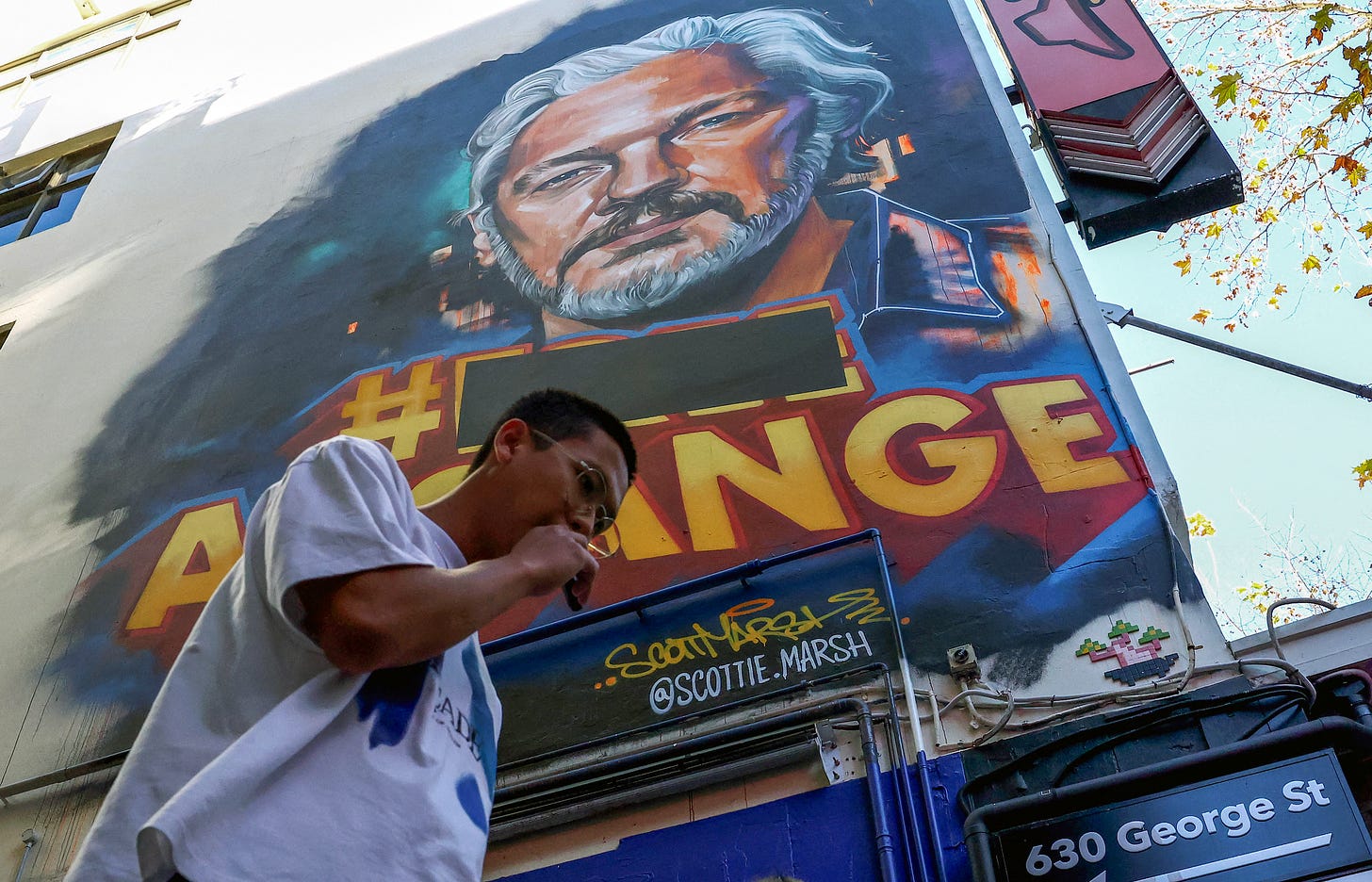Assange is Free, But Never Forget How the Press Turned on Him
The Wikileaks head is finally out of prison. A look back at some of the comments that kept him inside
Wikileaks founder Julian Assange is free, having struck a deal with the United States Justice Department that will credit him for time served and allow him to go home. As someone who campaigned against his detention, I’m happy for him, his wife Stella, his brother Gabriel Shipton, and the other members of his inner circle who kept the case in the public eye all these years. They deserve to celebrate today.
Despite the fact that the plea was carefully crafted to say the state never proved its case, the Justice Department’s insistence on admission to the top count of violating the Espionage Act means this will remain a sword over the heads of anyone reporting on national security issues. Governments have no right to keep war crimes secret, but Assange’s 62-month stay in prison is starting to look like a template for Western prosecutions of such leaks. For instance, former Australian army lawyer David McBride was just sentenced to five years for leaking “classified” details of offenses by Australian Special Air Service (SAS) in Afghanistan, including the planting of “throwdown” weapons near the bodies of unarmed Afghans.
No one should be confused about the reason for the Assange indictment. Although coverage today focuses on solicitation of classified documents about the Iraq and Afghanistan wars whose publication supposedly “endangered lives,” the Justice Department made it clear from the start that its fury centered on efforts to disclose governmental bad behavior. The Assange indictment, for instance, highlights the Wikileaks request for “Detainee abuse photos withheld by the Obama administration”:

The U.S. government is frosty about these topics for a good reason. The case record of detainees in places like Guantanamo Bay and the Bagram Collection Point in Afghanistan makes it clear the use of torture was far more extensive than the public realizes to this day, with one military coroner comparing the injuries of a dead Afghan prisoner to being “run over by a bus.” That’s another topic for another time, but the point is, the Assange case wasn’t just about the past. It’s significantly about the ongoing efforts to keep a lid on the extent of abuses connected to the War on Terror.
An argument can certainly be made that efforts to disclose things that are kept secret for good reasons must be punished. However, the classified nature of some of the solicited material wasn’t central to Assange’s case. The crime was soliciting “national defense information,” which can essentially be anything the government says it is. The use of the draconian Espionage Act will continue to send a message to anyone sniffing around any documents the state might find damaging, for any reason.
Many are calling Assange’s release a stunt, designed to help Joe Biden in his campaign against Donald Trump. It’s debatable how much this helps Biden, as there will be no shortage of voices reminding the public he had a chance to make this deal three years ago. His administration’s choices (and those of Trump’s) won’t be memory-holed easily, but I do worry about the public forgetting the role of another actor: the press.
When Assange was thought of as a vehicle for scoops about the iniquity of the George W. Bush administration, reporters loved him. Once he was seen as a critic of Barack Obama or as someone who helped Trump get elected instead of Hillary Clinton, they turned, and turned hard.
A quick review of some of the more incredible things said in print over the years:


